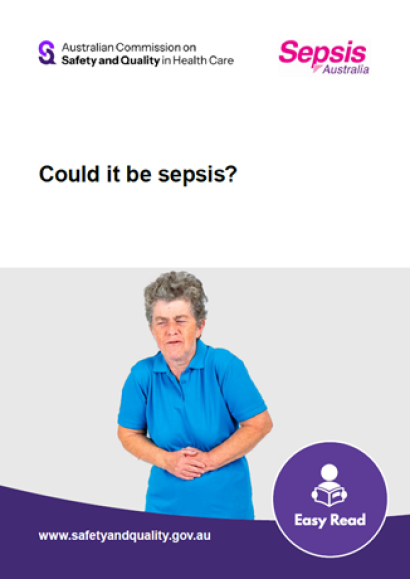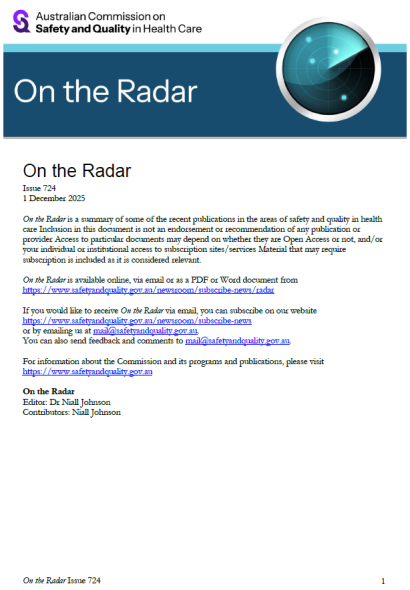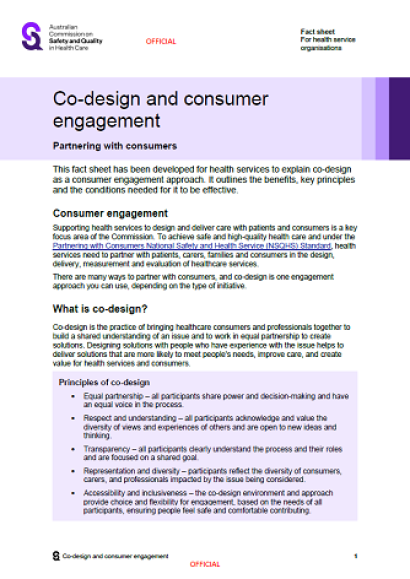From today 35,000 general practitioners are receiving a personalised Practice Reflections: COPD report by mail. This free initiative provides each eligible GP with a personalised, confidential report based on their own MBS data.
This Easy Read resource will help people with intellectual disability and cognitive impairment understand the signs and symptoms of sepsis, and what to do if they are worried about sepsis.
This issue includes items on violence against women and girls, electronic record systems, nursing, surgical mortality, and more. Along with the latest from BMJ Quality & Safety, Nursing Leadership, Residential Aged Care Communiqué and the International Journal for Quality in Health Care.
The Commission has released the National Guidelines for Presentation of Electronic Discharge Summaries (the Guidelines).
The Commission is seeking an Ongoing EL1 Senior Project Officer, Intergovernment Relations.
Information on this vacancy and how to apply can be found in the link below. Applications for this role will close 11.59pm Australian Eastern Daylight Time (AEDT) Monday 8 December 2025.
Questions about the role can be directed to Vannary Sar on 02 7232 5550.
This fact sheet has been developed for health services to explain co-design as a consumer engagement approach. It outlines the benefits, key principles and the conditions needed for it to be effective.



